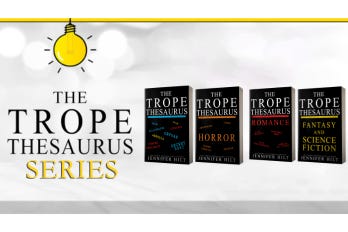Domestic thrillers are currently killing it in the marketplace. If you are new to the genre, check out my thoughts on Frieda McFadden's The Housemaid for my thoughts on a straight-up domestic thriller.
Domestic thrillers operate on some shared tropes: forced proximity (domestic setting), ticking time bomb, hidden identity, victim, protector, woman in peril, scars, and secrets. The story's trajectory is that the protagonist, as prey, becomes a protector.
Twisting tropes is a crucial part of storytelling. But you must understand the trope before you can twist it. Happily, I’ve found a great example of subverting the heroic heroine to create a hot mess.
But first, let’s examine the heroic heroine to understand the foundation. Heroic heroines face brutal challenges and setbacks but manage to succeed in all aspects of life. They also usually become more physically attractive in the process. An example of a heroic heroine is Lessons in Chemistry.
In contrast, we have the hot mess or morally ambiguous heroine such as Bridget Jones or the more recent Fleabag series. With great delight, I introduce you to Love Letters to a Serial Killer by Tasha Corydell, which features a fantastic hot mess heroine, Hannah.
Tasha Corydell’s Love Letters to a Serial Killer is a striking example of how twisting well-loved tropes can create fresh, unforgettable narratives. Corydell subverts traditional romance and crime elements in this novel, flipping the familiar expectations of love, obsession, and moral boundaries. Examining how Corydell reinvents these tropes provides valuable insights for writers who want to breathe new life into familiar frameworks.
The protagonist, Hannah, has terrible taste in men because her type is emotionally unavailable. She feels disappointed and tries to get men who won't spend the night to become serious boyfriends. Hint: it's not going well. She works demeaning jobs and is generally unfulfilled with her life—until she discovers the true crime online community.
Her obsession with a recent murder and the suspected killer, William, gives her life purpose. The uneasy relationship between protagonist Hannah and William is at the heart of Love Letters to a Serial Killer—their dynamic challenges expectations of a romantic connection.
Traditionally, the focus is on the promise of redemption or self-discovery, with one character softening or "saving" the other, which is a familiar premise. However, Corydell shows Hannah and William's relationship as dark, obsessive, and fraught with ambiguity. Rather than repelling her, the darkness in her serial killer pen pal excites Hannah.
Corydell invites readers to explore a relationship rooted in attraction to danger rather than growth. For writers, this approach offers a fresh look at relationships—rather than framing love as a cure for darkness, Corydell frames it as a pathway into deeper, uncharted psychological territories. This approach adds intrigue and complexity, particularly within the crime thriller genre, where redemption arcs are familiar.
One of the most refreshing elements in Love Letters to a Serial Killer is Hannah's rejection of the heroine who seeks to redeem or change their morally gray love interests. Hannah's attraction doesn't come from a desire to change the killer. Instead, she is fascinated by his unchangeable nature, almost revering the damage within him. She looks for opportunities to shame him and show him off as a freed serial killer after his release. He's an object for Hannah to use to increase her self-esteem.
This subversion forces readers to focus on Hannah’s internal journey, which is more about self-discovery than saving anyone. Hannah thinks she is a 'good person', yet her actions, such as spying on her fiancé William and sleeping with his brother, show otherwise.
The Unsettling Allure of the Antihero
Love Letters to a Serial Killer offers a unique perspective on the “antihero” trope. It’s less about what William did (or didn’t do, as it turns out) and more about Hannah’s journey. Hannah wants him to be a killer, and she’s dreadfully disappointed to learn that she’s been duped all along.
This nuanced approach to the antihero trope opens up complex narrative possibilities. Writers can note how Corydell uses this trope to reflect more on Hannah’s character than the antihero himself. Rather than glorifying his flaws, the story scrutinizes Hannah’s attraction, making the antihero a mirror for her inner complexities. It’s a powerful technique for adding layers to character dynamics, turning the spotlight onto the protagonist’s motivations rather than simply creating a seductive “bad boy” character.
Final Thoughts: Embracing Moral Ambiguity
What makes Love Letters to a Serial Killer so haunting and compelling is its fearless embrace of moral ambiguity. Corydell doesn’t shy away from the complexities of Hannah’s attraction or the inherent darkness of the relationship. This commitment to moral nuance is a critical lesson for writers looking to twist tropes. Hannah embraces her predator qualities rather than being prey.
For writers, Love Letters to a Serial Killer exemplifies how subverting tropes can reinvigorate genres, challenge readers’ expectations, and create psychological depth. By twisting the familiar into the unfamiliar, writers can tap into the unease, allure, and fascination that make stories unforgettable.
Interested in learning more about tropes, what they are, and how to use them to make your story stronger? Check out my Trope Thesaurus Series!
So, what do you think?
What are your favorite examples of tropes being subverted in novels, and how did they enhance the story for you?
Do you prefer morally ambiguous heroines or traditional heroic heroines? What draws you to one over the other in your reading?
Which tropes in domestic thrillers do you find the most compelling, and how would you like to see them twisted or reinvented in future stories?
Let us know in the comments.
If you found this interesting, then there are over 850 exclusive posts available behind the paywall, including tons of interviews, courses, books, and more to help you on your author growth journey. You can start exploring with a seven-day trial, or even just give us one tip to show your support.








I'm a huge fan of subversion. Some of us are just so tired of writing to the expected notes and outcomes. And I have to believe some readers are as well.
The thriller genre isn’t exactly my jam, but I think it’s so fascinating to discuss how new twists on tropes can work within storytelling! Just because a certain storyline is tried and true doesn’t mean something new can’t be good. I always love the excitement of seeing someone do something new.
Also, I find morally ambiguous heroes to be more realistic, and therefore more relatable. There are a lot more gray lines in life than I grew up believing there were.